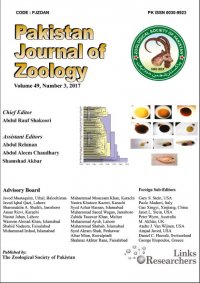Aqueous Myrrh Extract Relieves Oxidative Stress-Dependent Nephrotoxicity Induced by Ethanol in Male Rats
Aqueous Myrrh Extract Relieves Oxidative Stress-Dependent Nephrotoxicity Induced by Ethanol in Male Rats
Abeer Alahmari1,2*
ABSTRACT
The kidney is one of the target organs whose structure and functions are significantly influenced by toxins. Because the protective impact of myrrh resin on renal damage induced by alcohol intake has not been previously evaluated, this study was designed to investigate the in vivo antioxidant activity of aqueous myrrh extract (AME) on oxidative stress-dependent nephrotoxicity caused by ethanol in rats. Male Sprague‒Dawley rats orally received 40% ethanol (3 g kg-1) and were then orally treated with (500 mg kg-1) AME daily for 30 days. Kidney function, oxidant and antioxidant status, and histopathology alterations in renal tissue were measured. Animals that received ethanol displayed nephrotoxicity, as confirmed by markedly increased serum creatinine, urea, and uric acid levels along with histological changes, including shrunken glomeruli, necrosis, inflammatory cell infiltration, congestion, and edema. They also exhibited significantly elevated lipid peroxidation and oxidant radicals with decreased antioxidant parameters in renal tissue. In contrast, AME alone did not cause renal injury, and it was able to notably improve the toxic impacts of ethanol in the kidney when administered together. In conclusion, AME provided preservation against ethanol toxicity by scavenging reactive oxygen species (ROS) and relieving oxidative stress as a result of its rich chemical content of furano-sesquiterpenes, which possess powerful antioxidant activities.
To share on other social networks, click on any share button. What are these?









